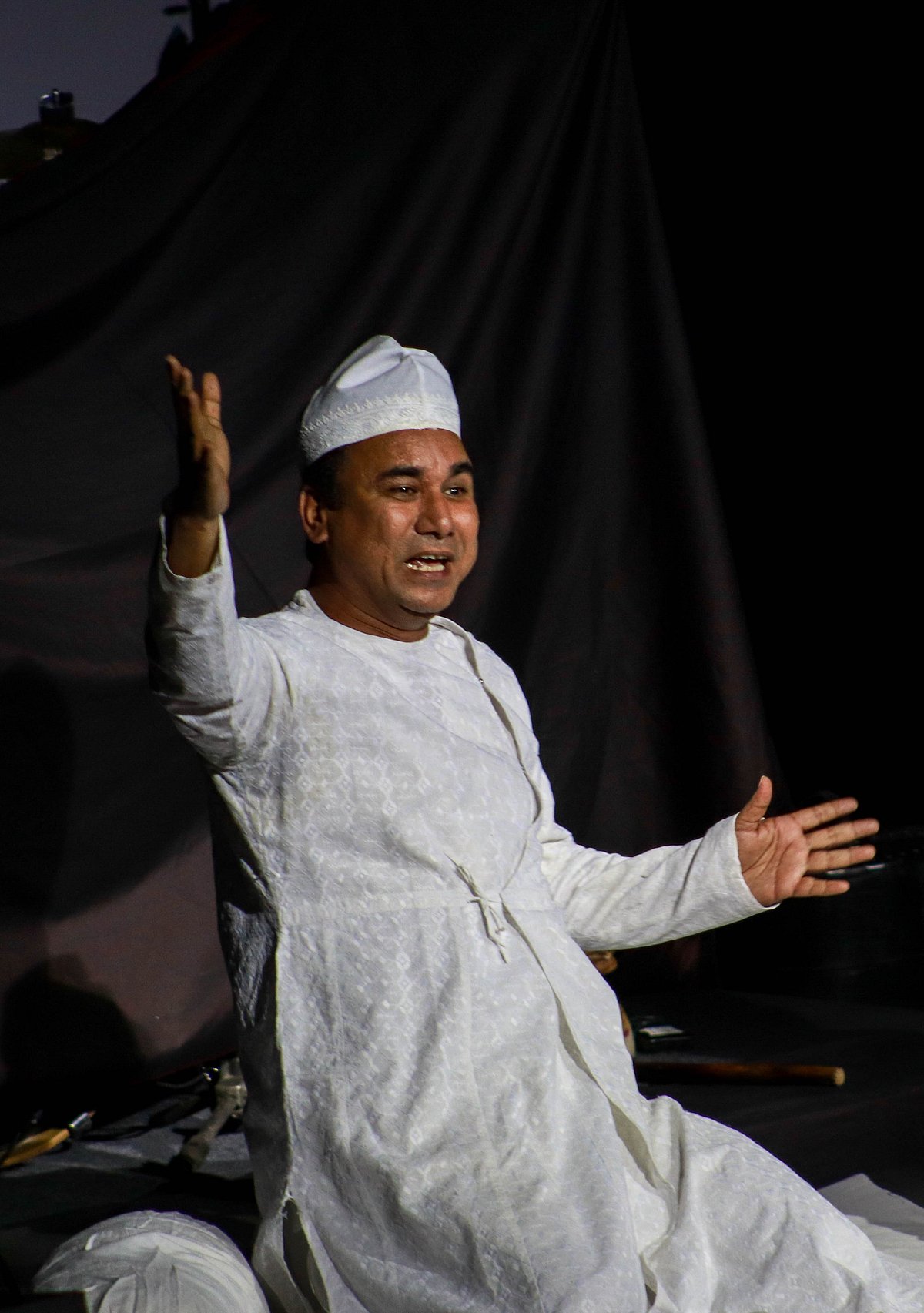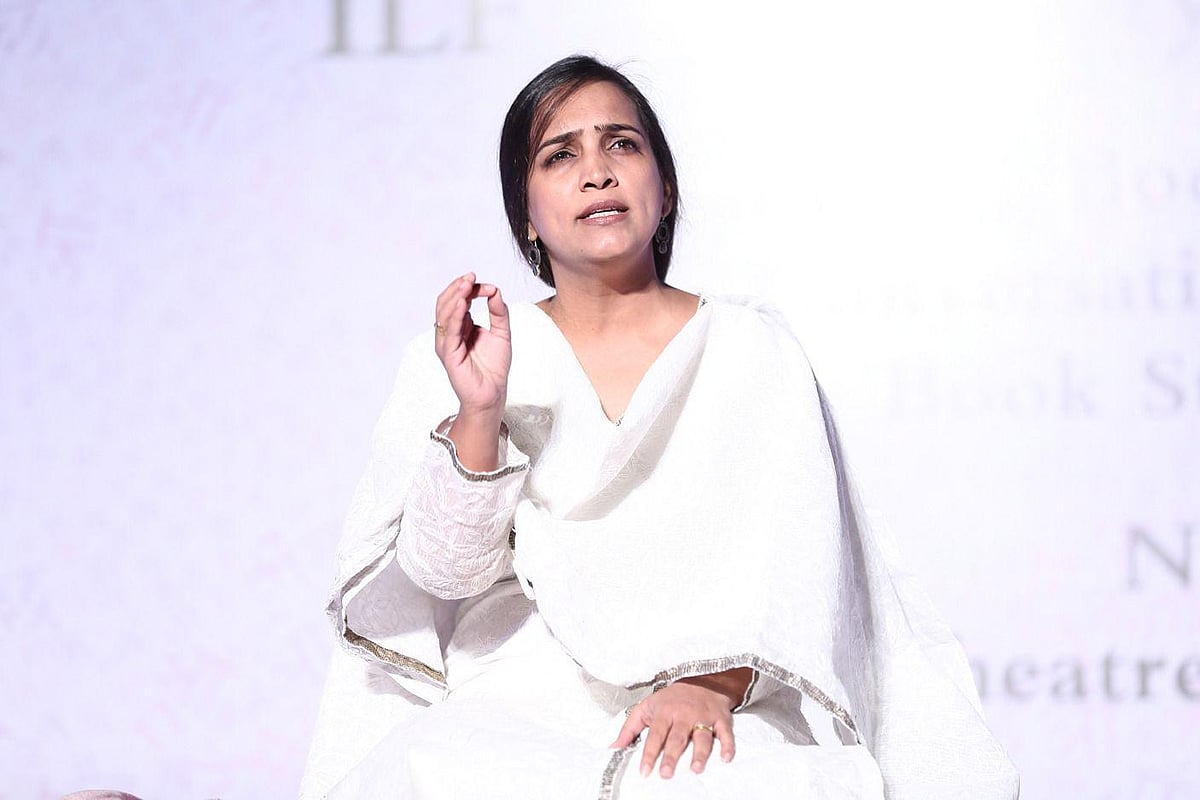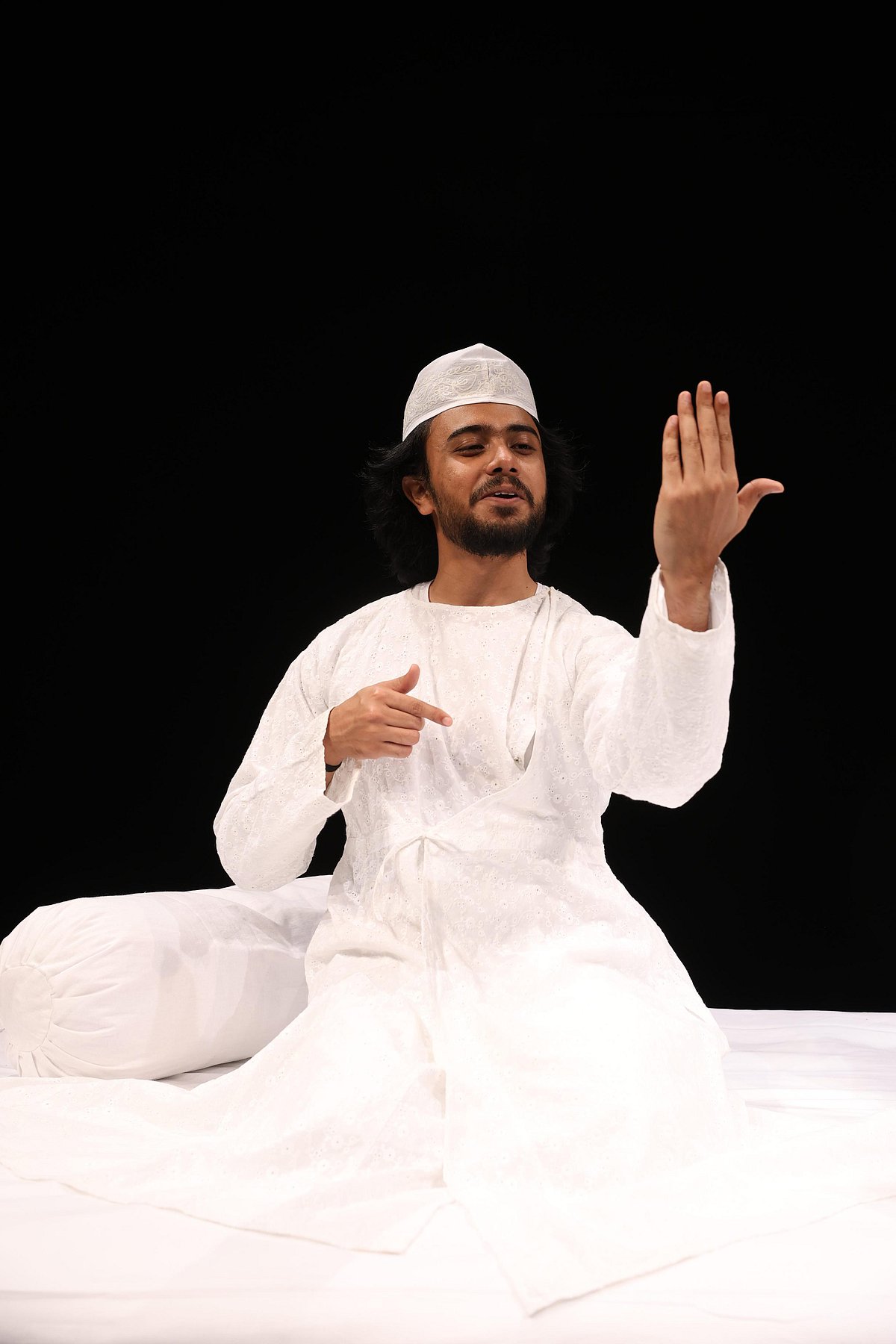A Trio Of Dastans Marks Prithvi Theatre’s Festival Finale
Almost like a grand finale to the annual Prithvi theatre festival, three dastans are being staged today, at the theatre built in Juhu by Jennifer and Shashi Kapoor in honour of the latter’s father, Prithviraj Kapoor. Presented by the Delhi-based Dastangoi Collective, Dastan-E-Guru Dutt, Dastan Raja Vikram Ke Ishq Ki and Dastan-E-Kabir are the three stories that will be narrated today. Dastangoi, an ancient form of story-telling which originated in Persia, and was dying out in India, was revived largely by dastango Mahmood Farooqui, with Anusha Rizvi producing the Collective’s rich trove of tales. Speaking to the narrators of today’s dastans a few days ago, I was struck by how they have expanded the scope of a traditional oral art to present lives and thoughts of personalities from diverse backgrounds.
Mahmood Farooqui, who has directed all three and tells the tumultuous story of film actor-director-producer Guru Dutt, shared why he chose to delve into the life and times of this enigmatic personality. Recalling that he has been fascinated with the
filmmaker from the time he was a young adult, he elaborated, “I was around 16 years old when Doordarshan telecast his films and I was completely besotted with his persona. I even had a tape of his film Pyaasa. Over the years, I have read books on him, seen a documentary on him, spoken to people closely associated with him…so it was almost inevitable that I would tell his story in his centenary year. Other dastangos of our group have narrated biographies like Raj Kapoor’s but I wanted to present this one,” he said.
 Darain Shahidi in Dastan Raja Vikram Ke Ishq Ki
Darain Shahidi in Dastan Raja Vikram Ke Ishq Ki“Guru Dutt worked in very significant times. You had the studio system when he started out, with major studios like Prabhat in Poona, Bombay Talkies in Bombay and New Theatres in Calcutta making meaningful films with tremendous sincerity. Directors ruled the roost here. Guru Dutt’s classic Kaagaz Ke Phool was, in fact, a tribute to this system that produced giants like Mehboob Khan, Raj Kapoor and Bimal Roy in Bombay and Debki Bose, Nitin Bose, P.C. Baruah in Calcutta. Then there was IPTA,” Farooqui added. “To place Guru Dutt in this context I had to do a lot of research. The more I read the more I wanted to know, and so my research went on endlessly. My first draft was about 250 pages which was too long for a stage show. So I had to edit it considerably. However, I am putting all the information I have gathered into a book.”
Dastan-E-Guru Dutt has not just interesting facts. It is also punctuated with songs because as Farooqui pointed out, “Music was integral to the films of those times. Sometimes we don’t remember the films but we remember their songs. And Guru Dutt was a master at filming songs.”
Dutt’s dastan also touches the sadness of his early death. Elaborating on this, the writer-story teller said, “Not only did he depart early, due to suicide or accident or overdose of pills, he left behind a lot of unhappiness. But Guru Dutt was not alone in being self-destructive. There were other artistes like him who courted early death like Ritwik Ghatak, P.C. Baruah, Motilal, Meena Kumari, writer Manto, poet Majaz. I have tried to place him in this larger context and also portray his relationships with Geeta Dutt and Waheeda Rehman.”
 Poonam Girdhani turns narrator for Dastan Raja Vikram Ke Ishq Ki & Dastan-E-Kabir
Poonam Girdhani turns narrator for Dastan Raja Vikram Ke Ishq Ki & Dastan-E-KabirDastan Raja Vikram Ke Ishq Ki, about Raja Vikram from popular folklore is more along the lines of ancient dastans. “I have taken this folk figure and conceived a story about him being betrayed in love, weaving many funny folk stories into it, sourced from A. K. Ramanujan’s vast repertoire. The dastan also has poetry by Mir strung into it. So it is a kind of melange of various things that will entertain,” revealed Farooqui.
Raja Vikram’s story will be narrated by Poonam Girdhani and Darain Shahidi. Girdhani pointed out, “It is a pure love story. When Raja Vikram is so heart-broken that he has lost all desire to live, Rani Choubuli comes into his life and pulls him out of his depression by entertaining him with stories.”
Revealing more would be a spoiler. Suffice it to say, that this story, like ancient dastans about kings and knights, will keep listeners engrossed with an element of suspense about what will happen next, with Mir’s poetry about the power of ishq, imparting an added dimension.
Dastan-E-Kabir is written by Udit Yadav and will be narrated by him and Girdhani. Yadav, who grew up listening to his grandfather reciting Kabir’s dohas, enthused, “Through this dastan, I wanted to explore the beauty of Kabir’s timeless poetry. He is one of those rare figures who belongs to no religion and yet speaks to all. His poetry demolishes dogma with disarming simplicity and his questions about identity, truth and faith are relevant even today.”
 Udit Yadav in Dastan-E-Kabir
Udit Yadav in Dastan-E-KabirAs an example of the timeless charm of Kabir’s couplets, Yadav quoted, “Pothi padhi padhi jag mua, pandit bhaya na koye/ Dhai aakhar prem ka, padhe so pandit hoye,” and stressed, “The emphasis is on love. Love towards others, love within.”
Girdhani, too, recited one of her favourite dohas which she explained is about existentialism, relevant to everybody, at all times, “Aakhar yeh tan khak milega, kahan farat magroori mein/ Kahat Kabir suno bhai sadho, Sahib mile saboori mein.”
Relevant indeed! In today’s hectic pace, Kabir’s simply-expressed truths acquire greater meaning, urging us to stop and introspect.
Altogether, it will be a day of meaningful and entertaining story-telling within the intimate environs of Prithvi Theatre. Just like Jennifer and Shashi Kapoor envisioned. Kudos to their son Kunal and grandson Zahan for taking forward their legacy in a manner that would make Jennifer and Shashi proud.
news